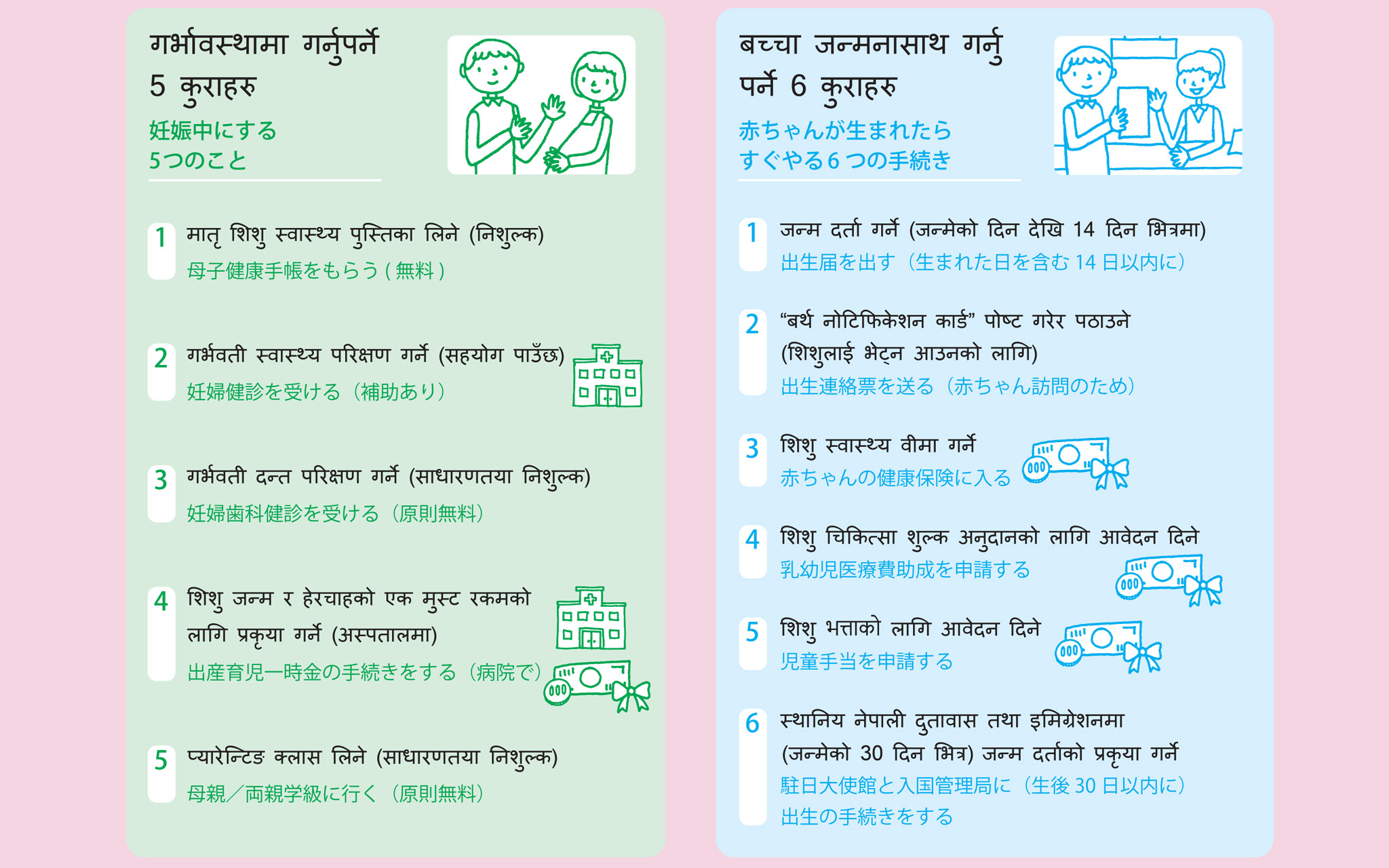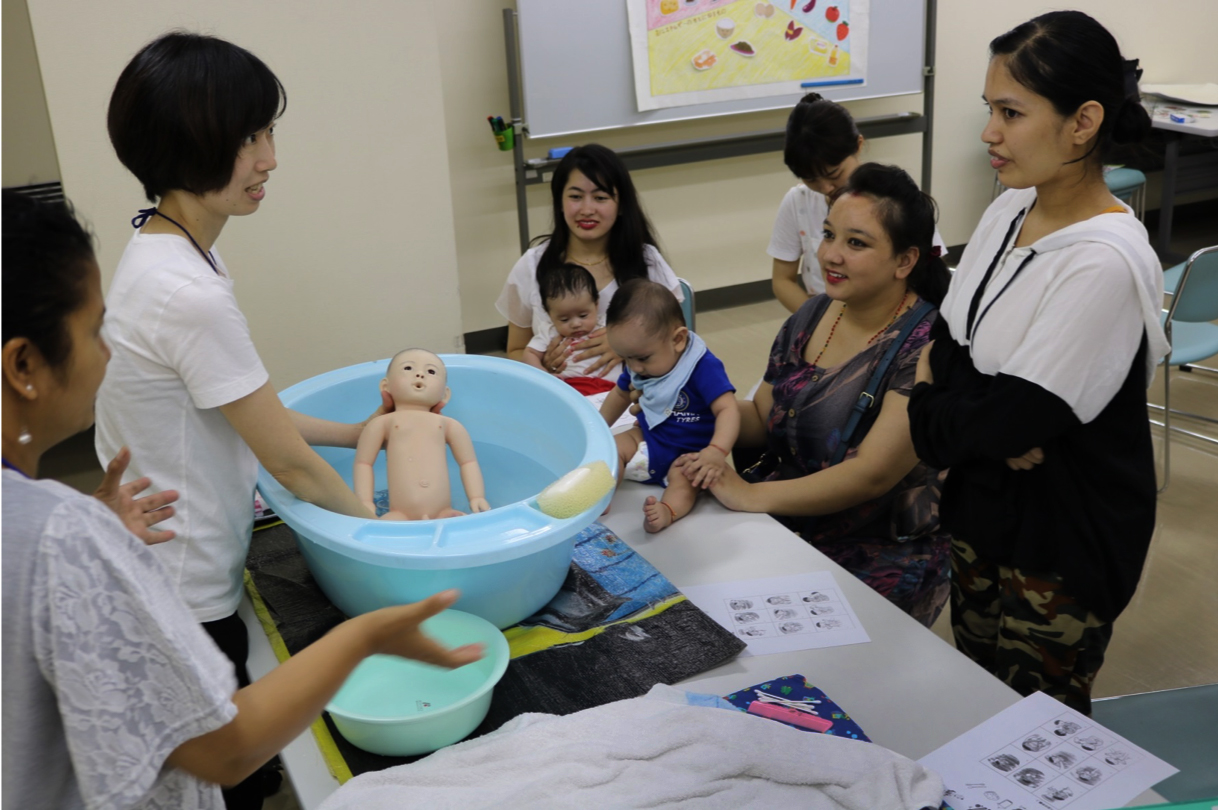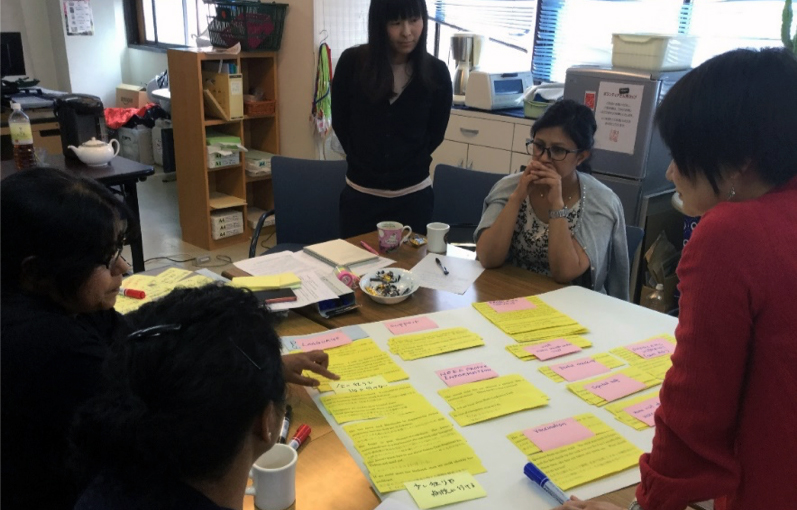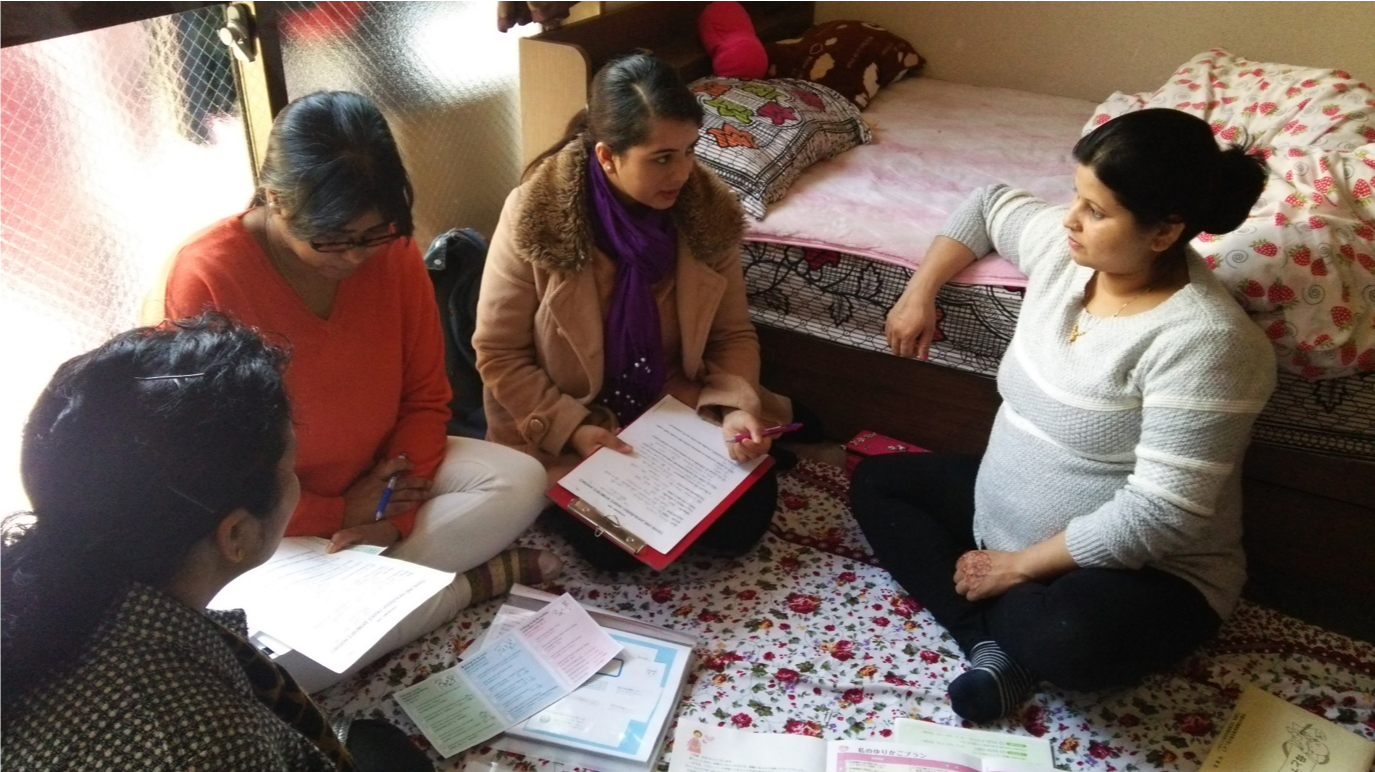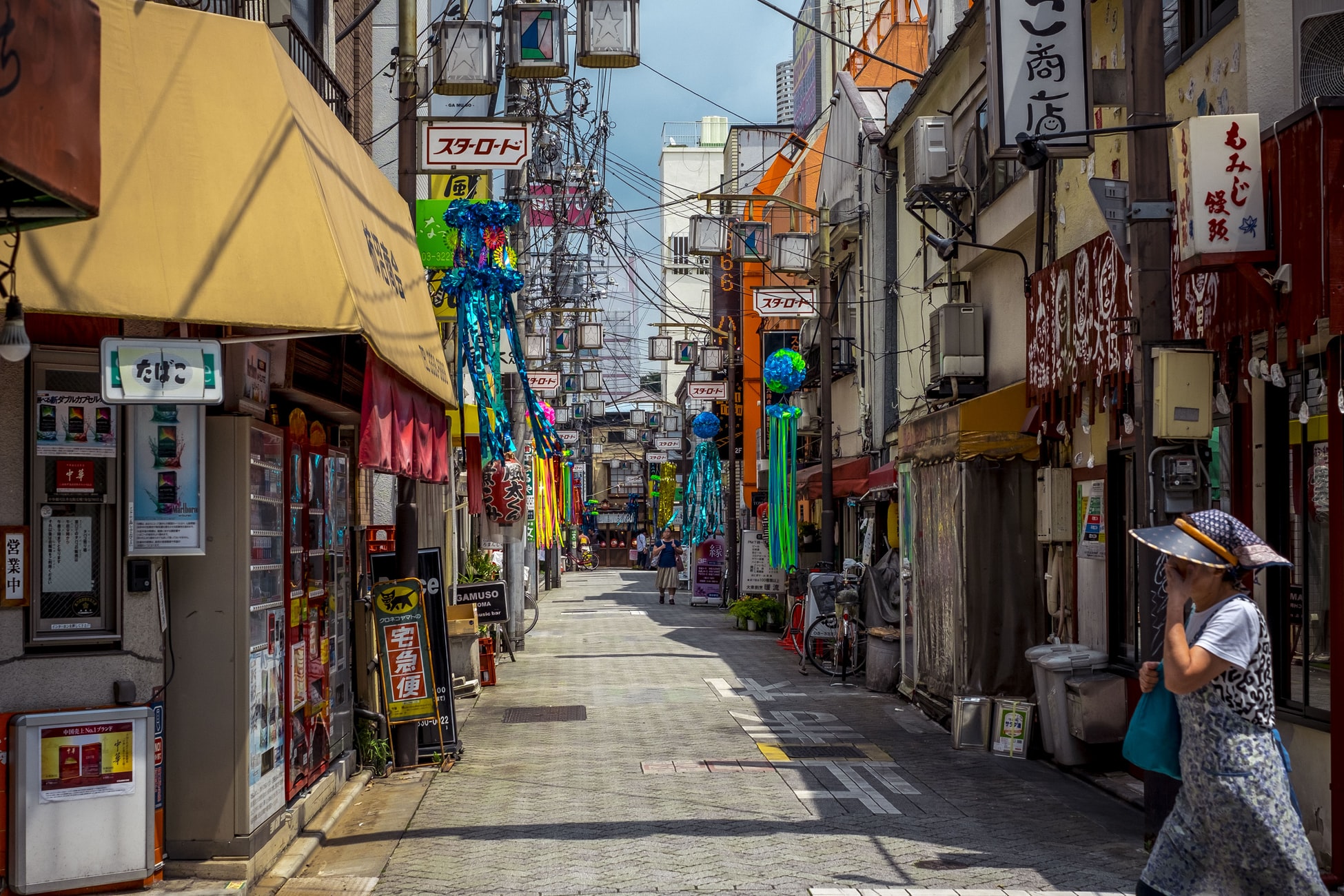
Multilingual health access for Nepali mothers in Tokyo
January 2015 - March 2019
Japan
This project aimed to better support the Nepali community based in Suginami ward, Tokyo. Photograph by Julie Fader.
Multilingual health access for Nepali mothers in Tokyo
January 2015 - March 2019
Japan
Migrants in Japan face many difficulties in accessing and utilising health and medical services and other social support systems. Lacking adequate support, migrants are more likely to be socially isolated and suffer from ill health. One of the biggest challenges for many migrants is the language barrier. Multilingual assistance for local government services is especially crucial, but has historically been seldom available.
A home visit service for newborn babies is provided by local governments to all new mothers in Japan regardless of their immigration status, to give advice and answer questions about baby care in the important first four months of life. However, due to the lack of language support, many migrant mothers are unable to communicate with public health nurses effectively, and some may not receive a visit at all.
A home visit service for newborn babies is provided by local governments to all new mothers in Japan regardless of their immigration status, to give advice and answer questions about baby care in the important first four months of life. However, due to the lack of language support, many migrant mothers are unable to communicate with public health nurses effectively, and some may not receive a visit at all.
Rei Foundation partnered with SHARE, an NGO founded by physicians, nurses and students, to first carry out a one-year research project focused on the situation for migrant mothers and their access to health care in Tokyo.
The research established there was a real need for the development of multilingual support for public health nurse and midwife visits, better access to postnatal care, and better health outcomes. Based on the compelling results of this first study, Rei Foundation partnered once again with SHARE to build mechanisms to allow non- or limited-Japanese speaking mothers and their children access health care services. For this project, the Nepali population of Suginami ward was identified as an appropriate group to pilot multilingual, culturally specific health care.
The research established there was a real need for the development of multilingual support for public health nurse and midwife visits, better access to postnatal care, and better health outcomes. Based on the compelling results of this first study, Rei Foundation partnered once again with SHARE to build mechanisms to allow non- or limited-Japanese speaking mothers and their children access health care services. For this project, the Nepali population of Suginami ward was identified as an appropriate group to pilot multilingual, culturally specific health care.
Nepali health promoters reported increased knowledge and self-esteem related to helping and gaining trust from their community.
A Nepali school was established in Suginami in 2013 which has seen the Nepali population in the neighbourhood grow. One year into the project, the school came on as a project partner, enabling improved access to the target population and greater involvement and education for the wider community.
A key success of this project was the development and dissemination of a health checklist and educational charts for new mothers, in both Nepali and English (which is often a second language ahead of Japanese in migrant populations). During this process, SHARE learned that most Nepali people have a mother tongue aside from Nepali, and linguistic style and dialect even within Nepali speakers varies according to background and age. In response to this, SHARE secured translators from different ethnic groups, including translators of Japanese national origin, and deliberated over expression, word choice and usage of English or Nepali numeral characters before the final version.
A key success of this project was the development and dissemination of a health checklist and educational charts for new mothers, in both Nepali and English (which is often a second language ahead of Japanese in migrant populations). During this process, SHARE learned that most Nepali people have a mother tongue aside from Nepali, and linguistic style and dialect even within Nepali speakers varies according to background and age. In response to this, SHARE secured translators from different ethnic groups, including translators of Japanese national origin, and deliberated over expression, word choice and usage of English or Nepali numeral characters before the final version.
SHARE realised the importance of producing material that was flexible and would be understood easily by the largest number of people.
Several female members of the Nepali community were trained as health promoters, and empowered to give clear, accurate maternal health information and advice on how to access services. Their activities and approach were led by interviews with Nepali mothers and what they identified as their greatest needs and challenges. The health promoters conducted house visits and ran seminars for pregnant women and new mothers from the Nepali community. SHARE noted that the promoters also benefitted from this programme, reporting increased knowledge and self-esteem related to helping and gaining trust from their community.
Several female members of the Nepali community were trained as health promoters, and empowered to give clear, accurate maternal health information and advice on how to access services. Their activities and approach were led by interviews with Nepali mothers and what they identified as their greatest needs and challenges. The health promoters conducted house visits and ran seminars for pregnant women and new mothers from the Nepali community. SHARE noted that the promoters also benefitted from this programme, reporting increased knowledge and self-esteem related to helping and gaining trust from their community.
As expected, visits from the health promoters improved health outcomes for mothers and their children. Several were referred to various social and public health services for extra support, and immunisation rates in children rose dramatically. To further combat the linguistic barriers to health care access and information, SHARE collaborated with the local public health administration to create a sustainable interpreting service. They developed materials for interpreter training sessions and ran beginner and intermediate level Japanese-Nepali interpretation classes on maternal and child health.
The institutionalisation of these mechanisms will mitigate many of the challenges faced by migrant mothers in Tokyo and create a lasting positive legacy of SHARE’s project work.
The institutionalisation of these mechanisms will mitigate many of the challenges faced by migrant mothers in Tokyo and create a lasting positive legacy of SHARE’s project work.
Before this project launched, those women from the Nepali community who migrated to Japan in the pilot area and had become pregnant and given birth often did so with little understanding of the language, lifestyle or maternal and child health services available to them. After implementing this project, these women were able to receive pertinent information and access the health care system.
In 2019, based on the positive outcomes of this pilot, Suginami Ward Koenji Public Health Center proposed a collaborative project to create a support system for migrant mothers and children in Suginami Ward, inviting SHARE to nominate itself as a partner organisation for the project.
In 2019, based on the positive outcomes of this pilot, Suginami Ward Koenji Public Health Center proposed a collaborative project to create a support system for migrant mothers and children in Suginami Ward, inviting SHARE to nominate itself as a partner organisation for the project.
Return to Projects




